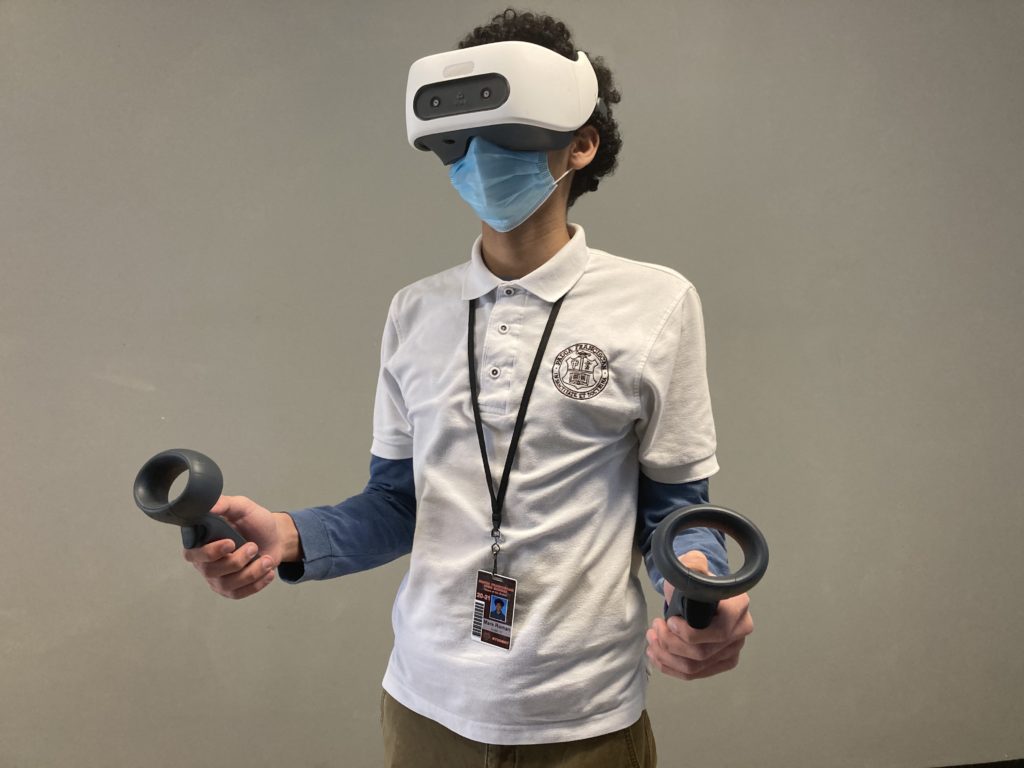
Padua junior Mark Roman uses the new virtual reality device during his Honors Anatomy & Physiology class.
Padua Franciscan High School is starting off its second semester on a high-tech note. This month, the school is rolling out the use of 24 new virtual reality headsets, which represent the next generation of medical education. This revolutionary technology will differentiate Padua and its MedTrack® program by empowering students far beyond their peers in medical education at the secondary level.
Students in the MedTrack® program will be among the first to use the HTC Vive Focus Plus mobile devices as part of Padua’s Honors Human Anatomy & Physiology course. They will eventually be able to walk entirely around a 3-D model of the human body, “touch” it, manipulate it, peel back layers or zoom into a particular body part, and ultimately understand the material with more depth and efficiency.
The goal is to use various software tools, including several self-developed modules, to achieve these objectives. Padua’s computer programming students will even have the incredible hands-on learning opportunity to assist with the software development for certain components. The possibilities for enhancing other areas of the curriculum are endless, allowing students to virtually experience a foreign country, Renaissance art, or the Milky Way galaxy, just to name a few.
In a specially-commissioned VR simulation, Padua students are assisting the immune system from the (virtual) confines of the school’s biology hallway. They’re fighting COVID-19 and flu cells with an antibody in one hand, while promoting red and white blood cell production with a thermometer in the other, all while listening to the Padua Fight Song. This immersive training is a timely, fun tool to help students acclimate to virtual reality and the functionality of the dual handsets.
Additionally, Padua purchased eight CleanBox sanitizing stations that use UV light. This will allow students in multiple classes to engage with the VR glasses on a daily basis, while making student safety a top priority.
This $50,000 project was made possible by the generous donation from a Padua family.